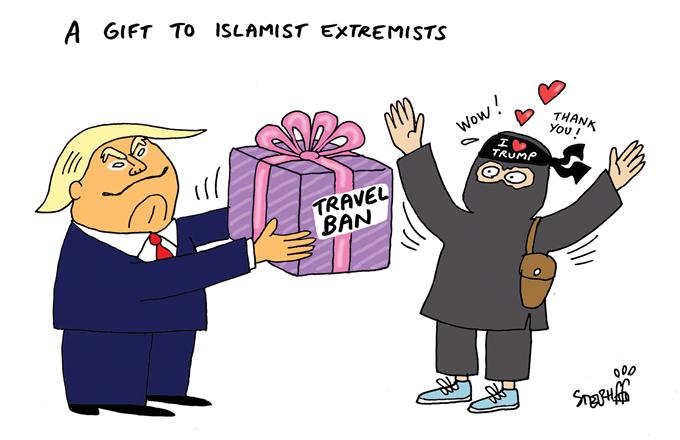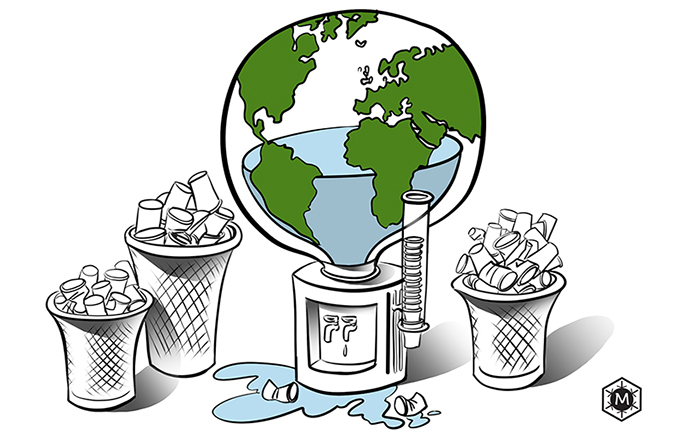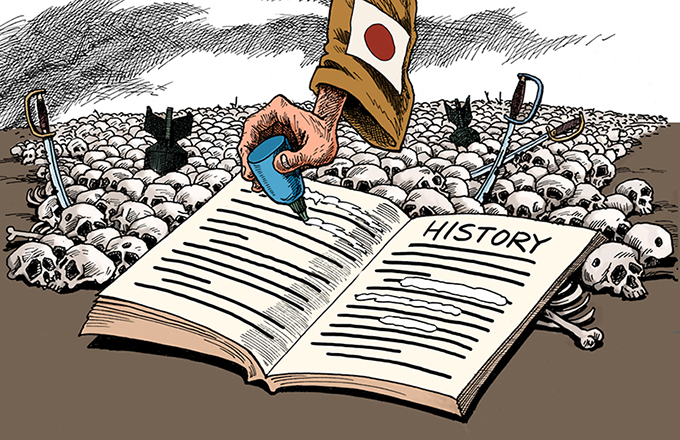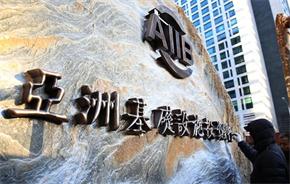Building the Belt and Road for win-win development
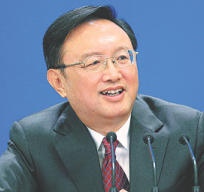 |
|
CHINA DAILY |
China will host the BRF in May this year. What is your vision for the Forum? What are the objectives that you hope to achieve at the Forum?
President Xi Jinping announced at the Annual Meeting of the World Economic Forum in Davos on Jan 17 that in May this year, China will host the BRF in Beijing, which aims to discuss ways to boost cooperation, build cooperation platforms and share cooperation outcomes. The Forum will also explore ways to address problems facing global and regional economy, create fresh energy for pursuing interconnected development and make the Belt and Road Initiative deliver greater benefits to the people of all countries. These messages from President Xi have outlined our vision and considerations for the Forum and set the direction for our preparatory work.
In the fall of 2013, President Xi Jinping put forward the Belt and Road Initiative to enhance complementarity and synergy of development strategies and promote common progress of participating countries through closer international cooperation. Over the past three years and more, the Initiative has made good progress in various cooperation and won warm response and active participation. Now it is at a critical juncture of making all-round progress. The BRF will be a good occasion for us to review past progress and plan ahead.
The BRF will be the highest-level forum under the Initiative since its launching over three years ago, and an important diplomatic event China will host this year. It has great significance for international and regional cooperation. Under the leadership of the Communist Party of China Central Committee with Comrade Xi Jinping as the core, we hope to achieve the following objectives at the BRF: first, thoroughly review the progress of the Initiative, showcase important early harvest outcomes, further build consensus for cooperation and sustain the momentum of cooperation; second, discuss major cooperation measures going forward, facilitate greater synergy of development strategies, deepen partnership and work for interconnected development; third, while promoting China's economic and social development and structural adjustment, work to advance international cooperation for win-win outcomes. As one Chinese saying goes, a tree needs strong roots to grow tall and a river needs an inexhaustible water source to flow far. By hosting the BRF, we look forward to working with others to take the Belt and Road forward, lay a more solid foundation and foster greater connectivity for world economic growth and deeper regional cooperation so as to bring more benefits to various countries and their people.
The Belt and Road Initiative was put forth more than three years ago. What are its achievements since then? How has it been received internationally? Has it made any difference to people's lives in other countries?
The Belt and Road Initiative was proposed by China. Yet it's not going to be China's solo show. A better analogy would be that of a symphony performed by an orchestra composed of all participating countries. This Initiative is meant to be a major international public goods benefiting all countries. It is not an empty slogan, but rather a series of visible and concrete actions centering around the crucial link of connectivity and infrastructure development as a key part of economic cooperation, which is well-suited to the needs of countries and regions along the route.
We are committed to the principles of extensive consultation, joint contribution and shared benefits. We stress practical cooperation, win-win outcomes and step-by-step progress. We are looking to align China's development with that of other countries and encourage greater synergy between their respective development strategies and cooperation under the Belt and Road Initiative. This will be conducive to expanded regional investment and domestic demand, job creation and poverty reduction and to a higher level of development of the entire region.
The past three years have witnessed the launching, expansion, faster-than-expected progress and fruitful outcomes of the Belt and Road Initiative. More than 100 countries and international organizations have joined this Initiative, among which more than 40 have signed cooperation agreements with China, reaching a broad international consensus on Belt and Road Initiative. The UN General Assembly, the UN Security Council, UNESCAP, APEC, ASEM, the GMS have all incorporated or reflected Belt and Road cooperation in their relevant resolutions and documents.
A number of important early harvests have been made. Economic corridor development is making steady progress. An interconnected infrastructure network is taking shape. Trade and investment has increased significantly. Key project cooperation is underway. The Asian Infrastructure Investment Bank (AIIB) and Silk Road Fund have provided firm support to financial cooperation. China Railway Express trains to Europe have been operating on the vast Eurasian continent, loaded with goods and matching the market needs of countries along the route. The trains have also set up a bridge of communication and friendship between peoples along the route, and become a welcome sight along the Belt and Road.
The joint development of the Belt and Road Initiative is an important channel to step up international cooperation, a cause embraced and advanced by all parties. It is generating new development opportunities to make people's lives better. It is fair to say that this Chinese initiative is delivering benefits to the whole world.
In a world faced with sluggish economic, investment and trade growth, backlash against globalization and rising uncertainties, how do you envision the BRF's contribution to the global economy and international cooperation? What are the theme and agenda for the Forum?
It is true that the global economy is yet to emerge from the profound impact of the international financial crisis. The recovery is fragile and slow, and the foundation for growth still shaky. There are rising protectionism, louder voices against globalization and the mounting tensions between openness, change and economic integration on the one hand and isolationism, outdated thinking and fragmented trade arrangements on the other. That being said, bilateral, multilateral, regional and global cooperation on infrastructure, connectivity and sustainable development is gaining momentum. In countries around the world, priority is given to the real economy, the manufacturing sector, industrialization and economic diversification. It is important to grasp new development opportunities and find effective means to overcome the difficulties and solve the problems.
History provides us a useful source of wisdom for addressing today's challenges. The land and maritime Silk Road over 2,000 years ago enabled people from various countries to defy national borders and conduct trade and friendly exchanges on camelback or merchant vessels. Those interactions left a glorious chapter in human history. History has proven that closed and exclusive arrangements have no future, while welcoming cooperation with open doors and ensuring benefits for all is the only way forward. This still rings true today. As President Xi Jinping said earlier at the World Economic Forum Annual Meeting, "Any attempt to ... channel the waters in the ocean back into isolated lakes and creeks is simply not possible. Indeed, it runs counter to the historical trend." The Belt and Road Initiative, rooted in the Silk Road spirit of peace, cooperation, openness, inclusiveness, mutual learning and mutual benefit, follows the principle of extensive consultation, joint contribution and shared benefits. Openness, inclusiveness and mutual benefit are the defining features of the Initiative and the very source of its strong appeal. We hope the BRF will help drive away the clouds of the economic doldrums and channel more positivity to global economic growth.
To better build consensus and advance cooperation, China has set "Belt and Road: Cooperation for Common Prosperity" as the Forum's theme. The agenda will focus on connectivity of policy, transportation, trade, finance and people. Discussions will be conducted on key topics such as infrastructure connectivity, economic cooperation and trade, industrial investment, energy and resources, financial support, people-to-people exchanges, ecological and environmental protection and marine cooperation. The Leaders Roundtable, the highlight of the Forum, will focus on two topics: Policy Synergy for Closer Partnership and Connectivity Cooperation for Interconnected Development.
In our view, the theme and agenda are highly relevant, considering the circumstances and challenges our world faces. Underscoring the importance of international cooperation, connectivity and synergy, the theme and agenda largely overlap with the world's major agenda. I also wish to add that many national and regional plans and global agendas have emerged in recent years, including such regional initiatives as the Eurasian Economic Union, the Master Plan on ASEAN Connectivity, the Investment Plan for Europe, the Programme for Infrastructure Development in Africa and the APEC Connectivity Blueprint as well as global agreements like the Paris Agreement on climate change and the 2030 Agenda for Sustainable Development. The international community needs to seize this opportunity and form synergy between those initiatives to deliver cooperative and shared benefits.




